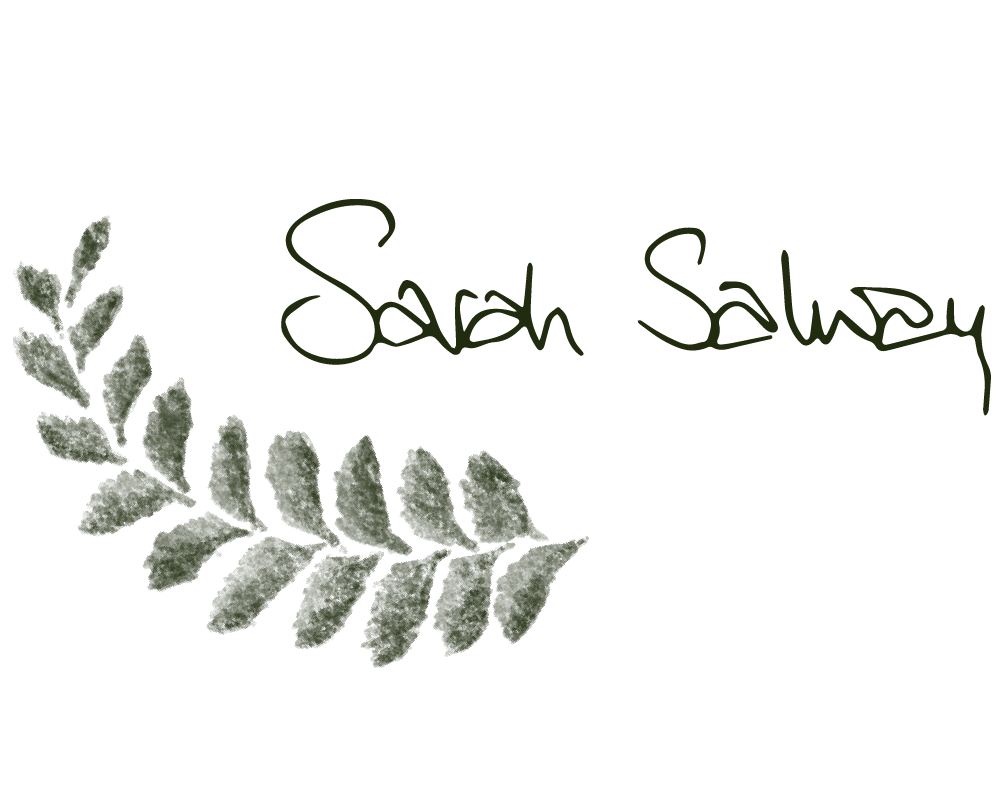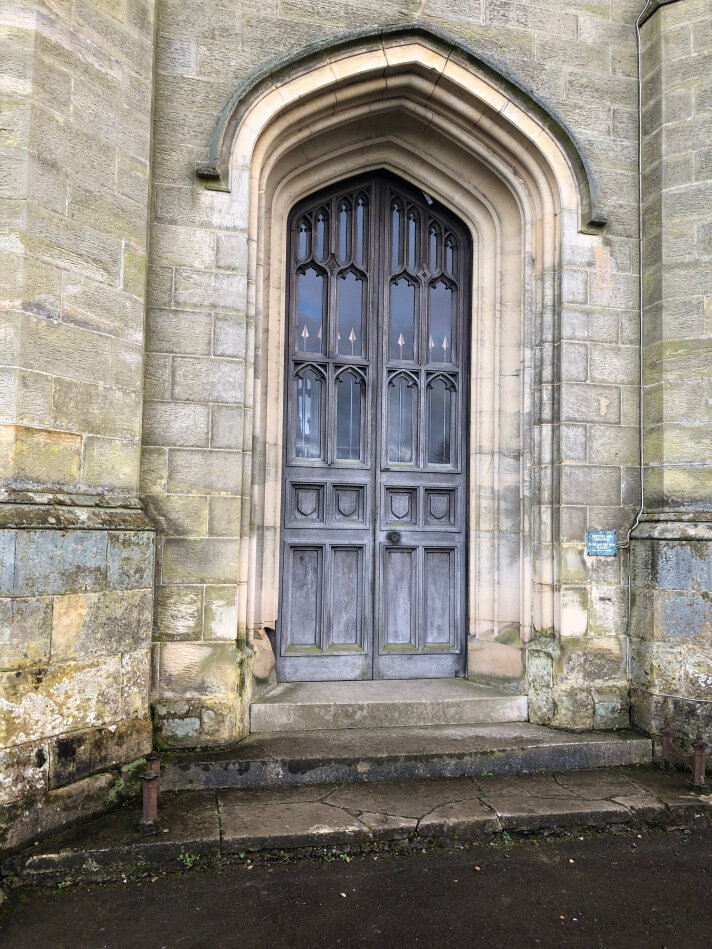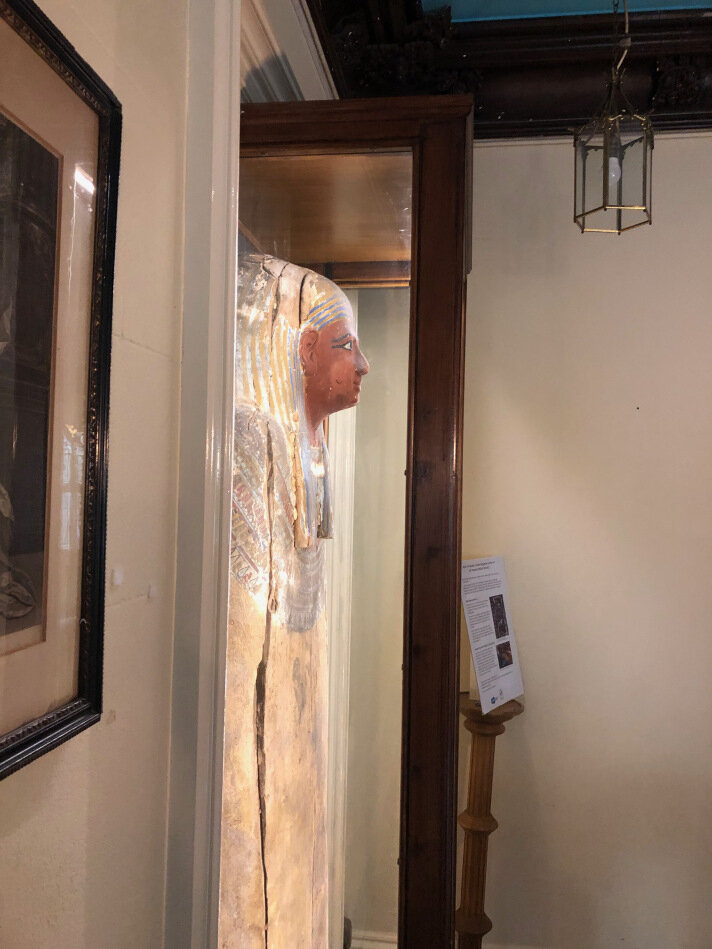How do you capture a castle? - a writing workshop at Chiddingstone Literary Festival
The Chiddingstone Literary Festival has been called ‘one of the best literary festivals in Britain’, according to the Tatler magazine, and it’s certainly one of the most beautiful settings for it. SO, lucky me, I got to give two workshops in the historic library there over the weekend.
It wasn’t hard to find inspiration, especially when you enter through this door, and then come across this Egyptian mummy on the way up the stairs.
And then there’s the library itself which looks like a collection belonging to someone extremely privileged. In fact, as I pointed out, some of the books there were probably bound by the previous owner of the castle, Denys Eyre Bower himself, and he had learnt bookbinding when he was in prison. But that’s a whole different story. Look again, look harder, look in a different way! That was the message of the workshop.
We looked at quick-fire ways of getting inspiration in the morning with a series of short exercises that led into one another. Here’s one – taking the work of Joe Brainard who wrote the now iconic book, I Remember:
I remember ‘no ankles’ on some old ladies.
I remember trying to imagine my grandfather naked. (Eck!)
I remember having a crush on a cousin and mother telling me that you can’t marry a cousin and, ‘But why can’t you marry a cousin?’ and, ‘Because it’s against the law,’ and ‘But why is it against the law?’ etc.
I remember white marshmallow powder on lips.
I remember a very big boy named Teddy and what hairy legs his mother had. (Long black ones squashed flat under nylons.)
I remember Dagwood and Blondie shorts before the feature started.
I remember not allowing myself to start on the candy until the feature started.
I remember big battle scenes and not understanding how they could be done without a lot of people getting hurt.
I remember crossing your fingers behind your back when you tell a lie.
I remember thinking that comic books that weren’t funny shouldn’t be called ‘comic books’.
We wrote our own ‘I remembers’ around books, and libraries, and castles… and then just as quickly wrote a second list. This time, starting again with I remember, we wrote lies. As wild as you liked. It was interesting to see how the mind had to work harder with the fictional memories, but we agreed that both lists took us to surprising places.
This was one of several themed poems we read, And Yet the Books by Czeslaw Milosz:
And Yet the Books
Czeslaw MiloszAnd yet the books will be there on the shelves, separate beings,
That appeared once, still wet
As shining chestnuts under a tree in autumn,
And, touched, coddled, began to live
In spite of fires on the horizon, castles blown up,
Tribes on the march, planets in motion.
“We are,” they said, even as their pages
Were being torn out, or a buzzing flame
Licked away their letters. So much more durable
Than we are, whose frail warmth
Cools down with memory, disperses, perishes.
I imagine the earth when I am no more:
Nothing happens, no loss, it’s still a strange pageant,
Women’s dresses, dewy lilacs, a song in the valley.
Yet the books will still be there on the shelves, well born,
Derived from people, but also from radiance, heights.
For our last exercise, YES WE WORKED HARD!, we looked at haiku – as in the capturing of a moment. This was part of thinking about how we noticed things – not just the sight of something, but also the questions we might have, the other senses we feel, the insights that come to us. I suggested that they might leave their poems and lines around the castle and during the rest of the day, I kept coming across them like mini treasures. They had indeed become part of the Chiddingstone collection.
In the afternoon, I ran another workshop in Getting Published – focusing particularly on short stories, essays and poetry. It’s one of my favourite workshops to give because it’s always an eye-opener in how much there is out there. If anyone would like a copy of my handouts for this, including where to find magazines, examples of how to write your biography, etc etc, do email me on sarah@sarahsalway.co.uk, and I’d be happy to share.
It was the end of a perfect weekend really. I’d been at the castle on the Saturday too, with Michael and John from the Poetry Exchange, recording people talking about the poems that had been a friend for them for the podcast. None of the festival’s recordings are up just yet, but you can listen to many others prepared earlier here. The Poetry Exchange is always a magical, surprising experience for everyone involved. This time round, we had Wilfred Owen, David Whyte, Mary Oliver, H W Longfellow, C P Cavafy, and Kathleen Raine all come and take tea with us in the castle Housekeeper’s Room. I’m pleased to report they got on very well indeed.





